AMD Ryzen 7 1700X Review
Why you can trust Tom's Hardware
Workstation And HPC Benchmarks
Our German team re-tested all of this hardware for today's story using the latest firmware. This especially affects the Ryzen 7 1800X and its 3.8 GHz overclocked results. Therefore, some of the updated test data no longer agrees with the launch results. Consider this a good thing. Maturity is helping Ryzen perform better.
2D Benchmarks: DirectX And GDI/GDI+
We extended our AutoCAD 2D and graphics throughput benchmark for the GDI/GDI+ functions to the new CPUs and summarized the results in a common section. Absolutely nothing changed from the key conclusions in our launch article.
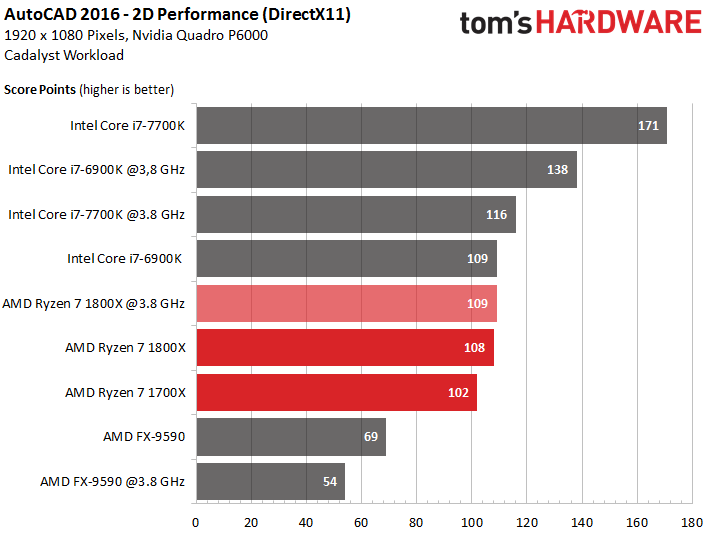
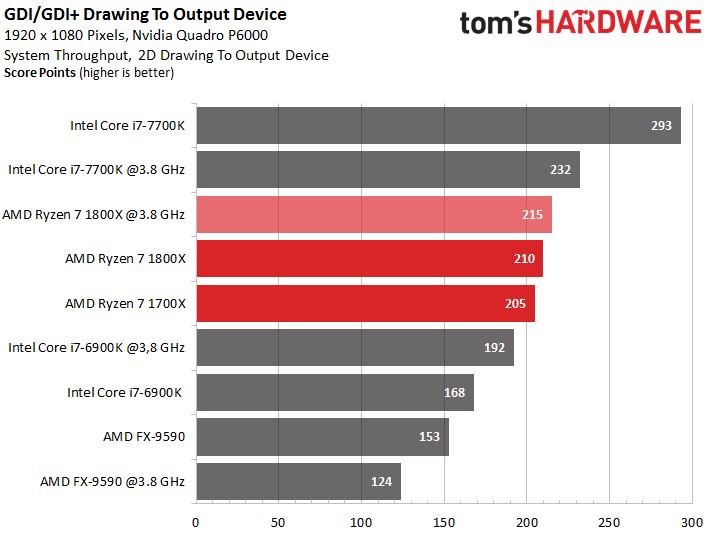
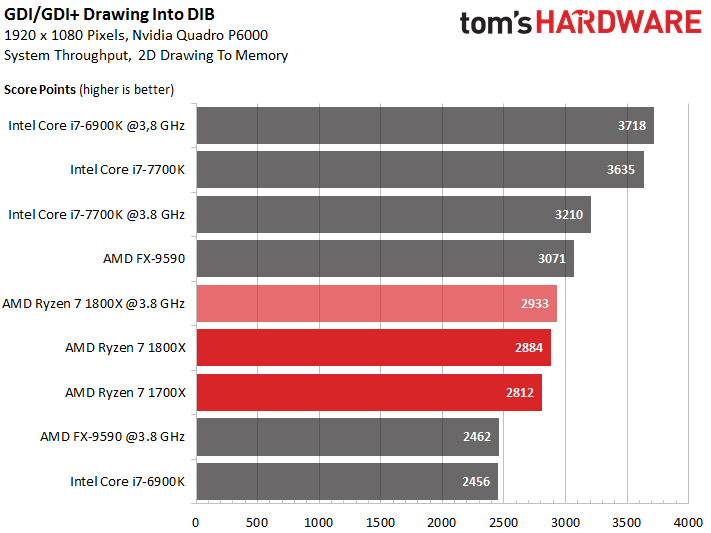
2D Benchmarks: Adobe Creative Cloud
The Ryzen 7 1700X is well-suited for a number of threaded workloads, even if it trails the 1800X due to lower stock clock rates. Still, the differences we measure are often not noticeable during normal use.
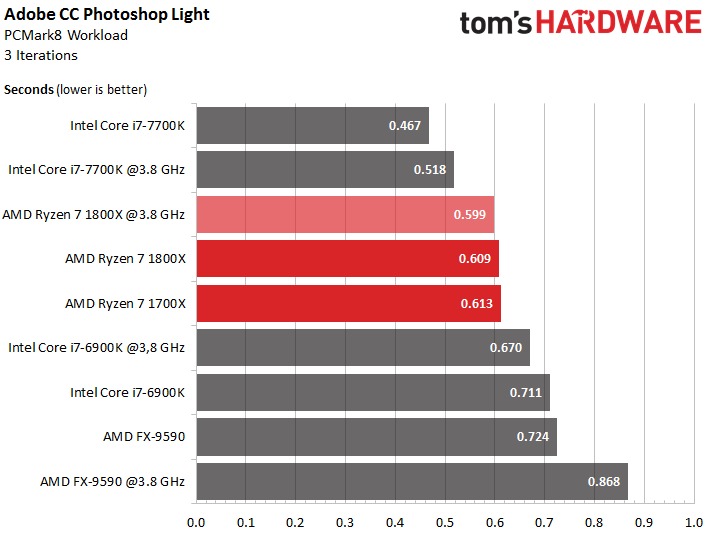
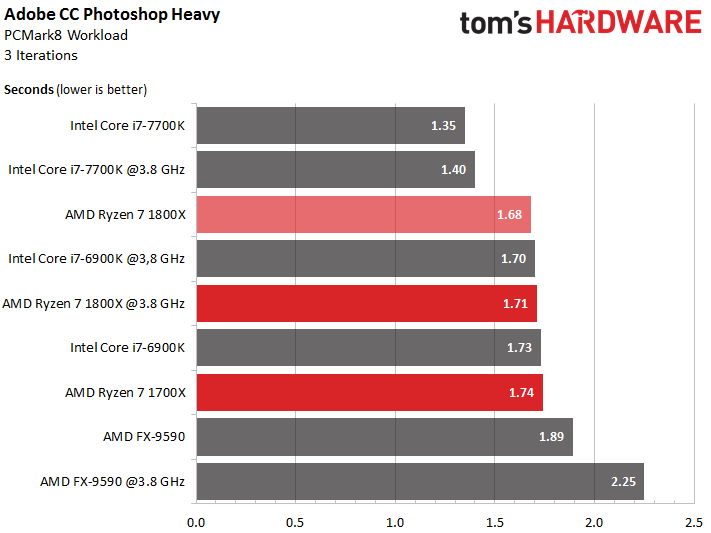
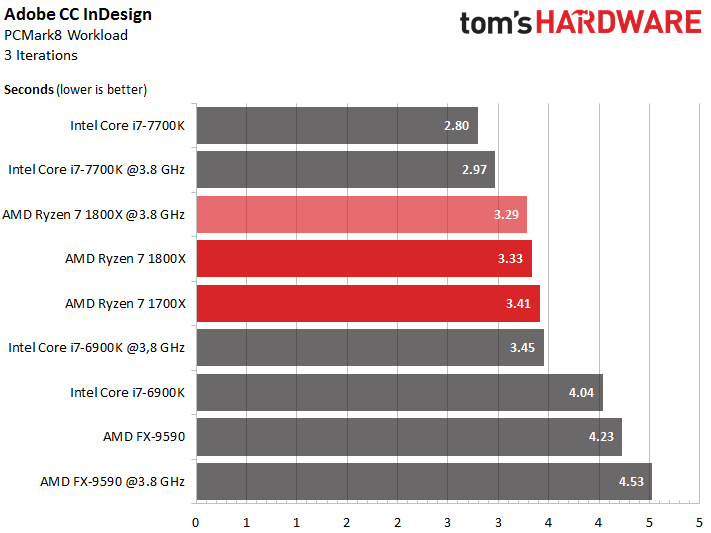
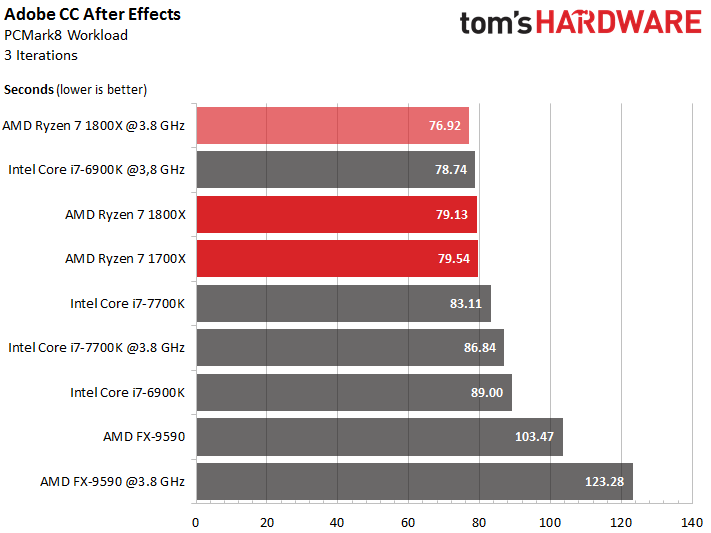
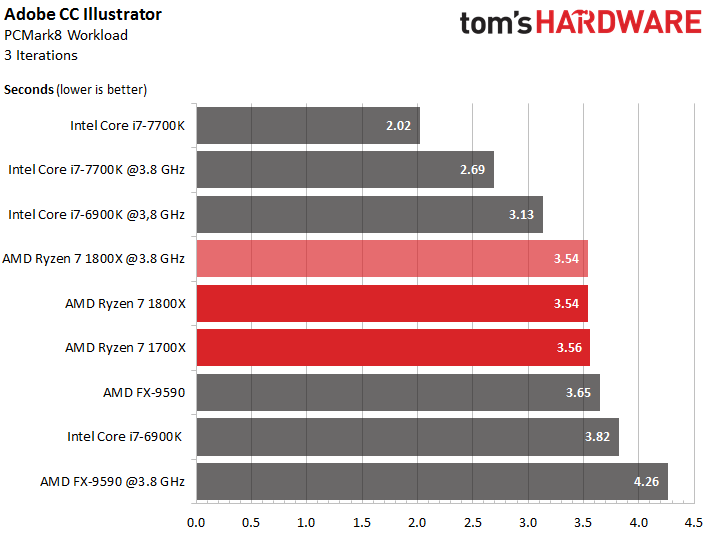
3D Benchmarks: DirectX And OpenGL
The performance of these CPUs in our professional graphics workloads doesn't really change from what we saw in our 1800X launch coverage. However, we see that Ryzen 7 1700X is at a disadvantage without overclocking, since the architecture's IPC throughput is lower than Intel's. This particularly hurts in single-threaded tasks.
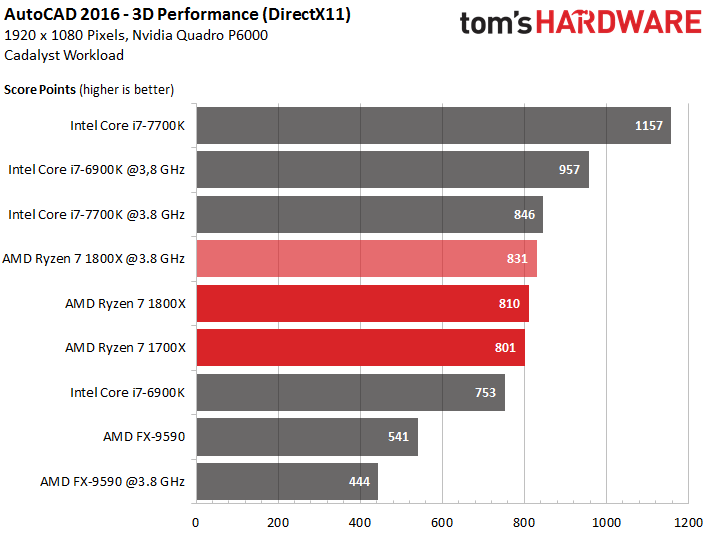
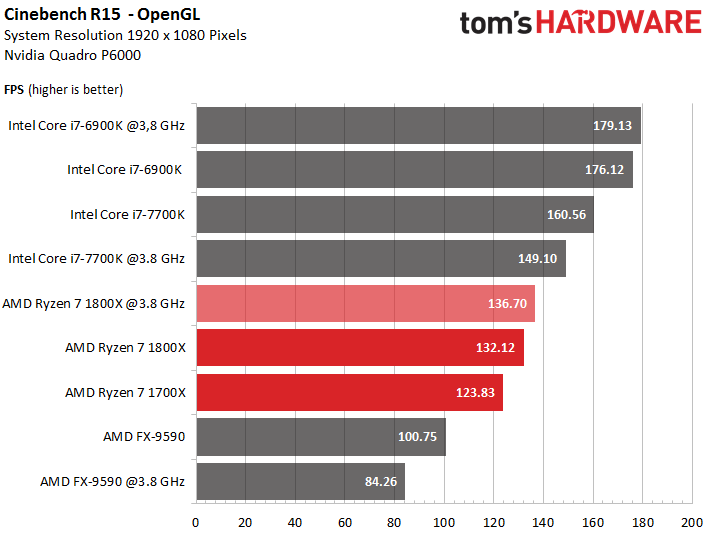
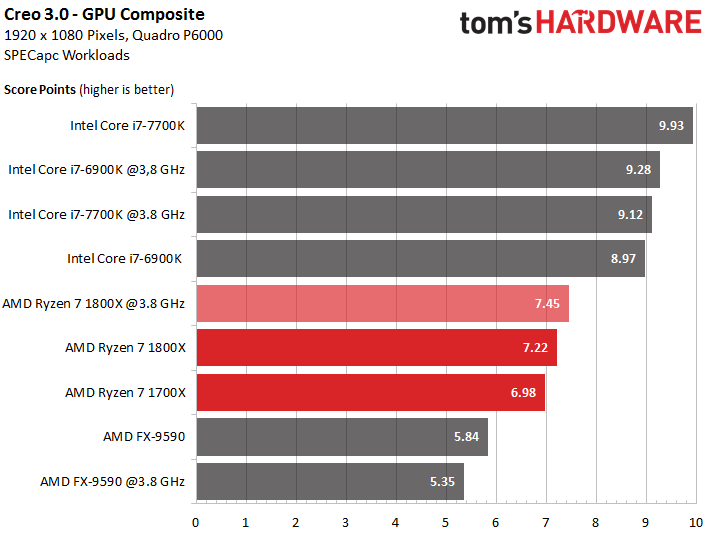
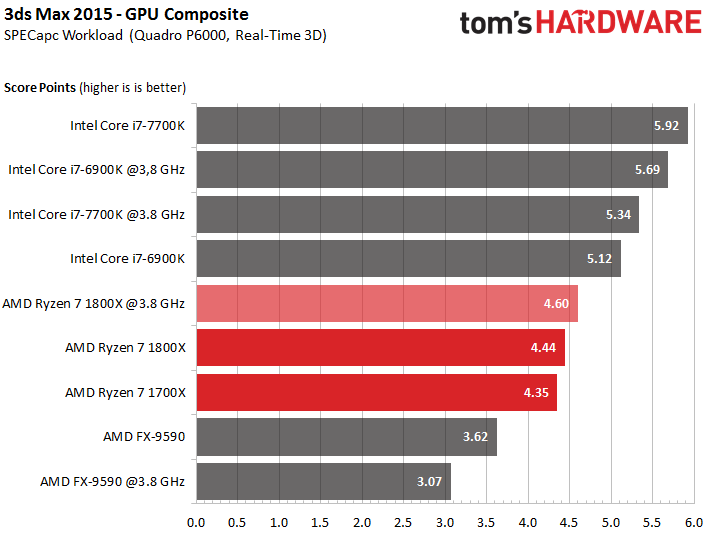
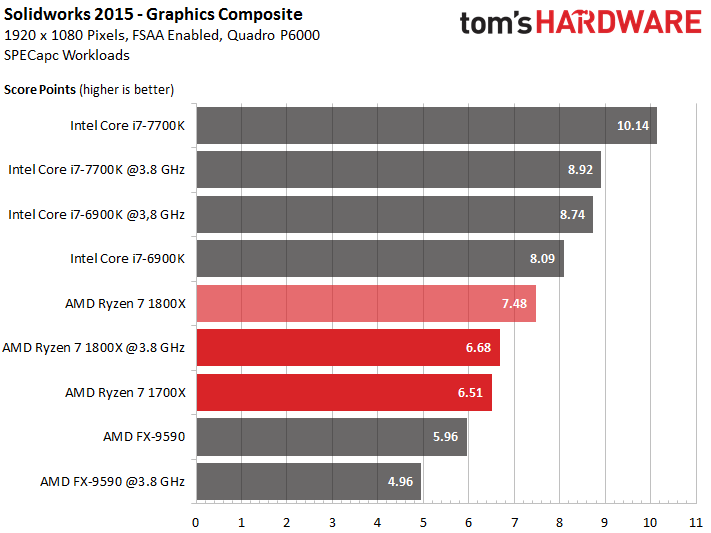
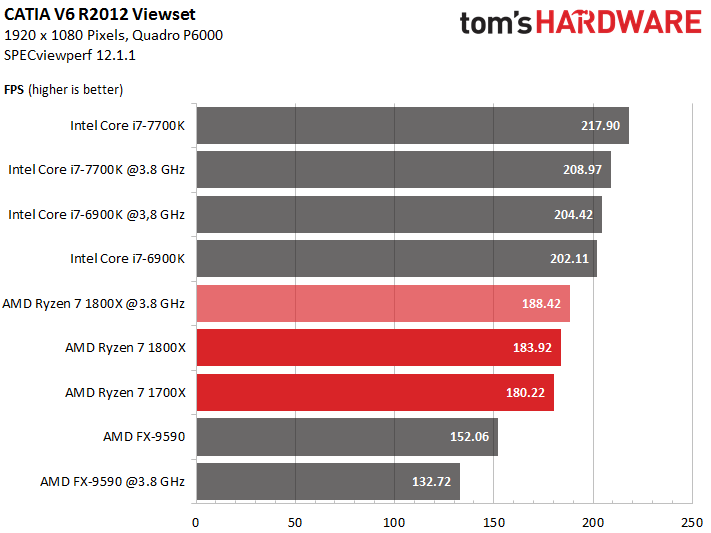
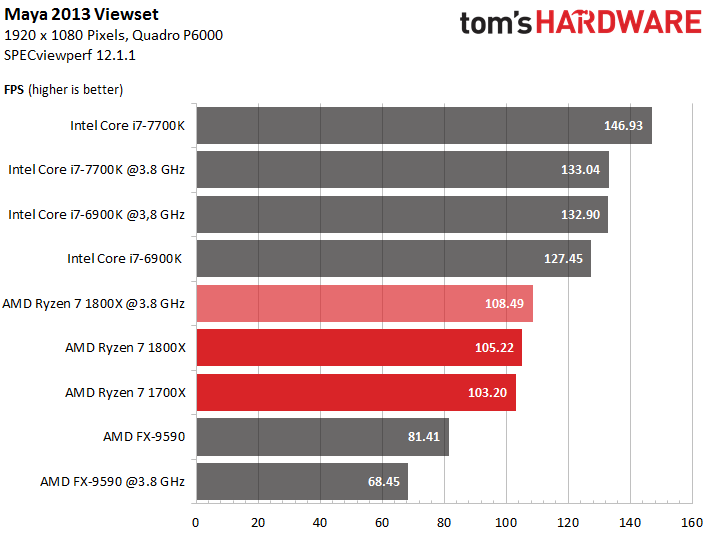
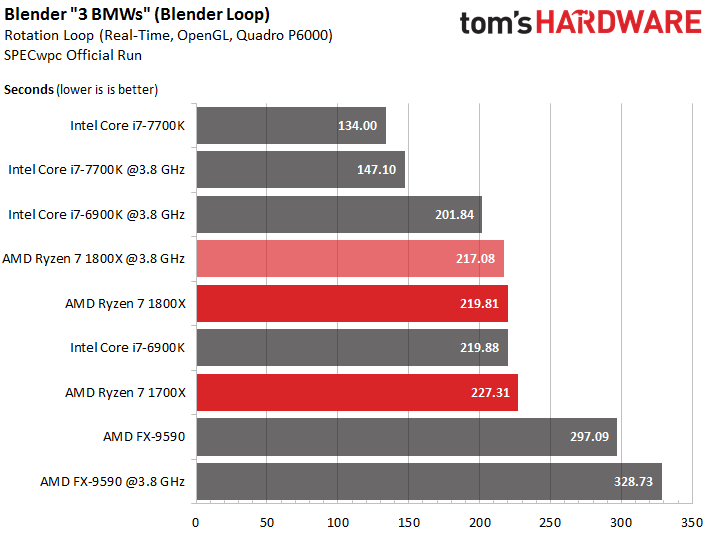
CPU Performance: Workstation
As we shift to more parallelized CPU-bound workloads, the Ryzen CPUs hit their stride and start beating some of the Intel processors that previously appeared much faster.
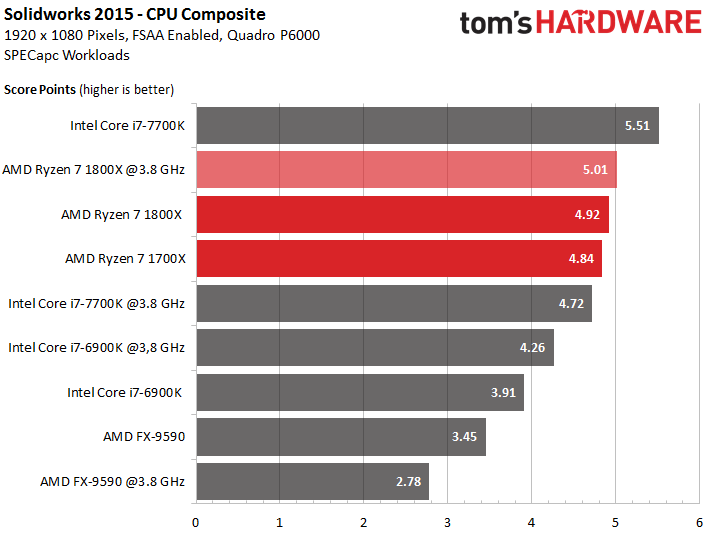
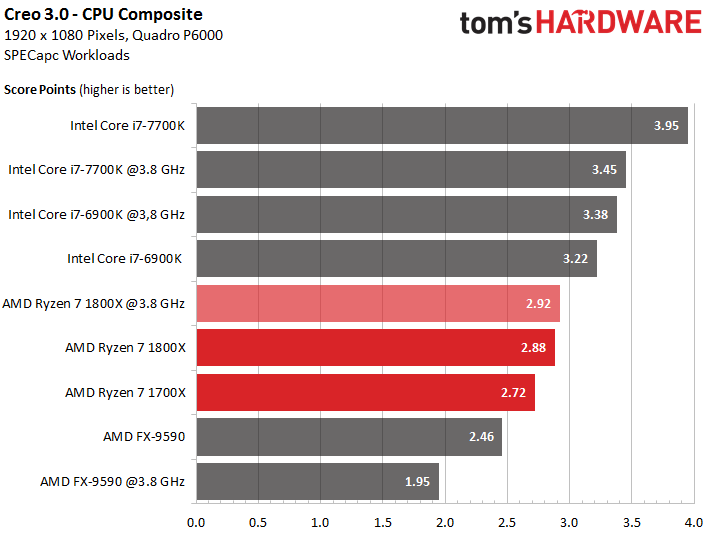
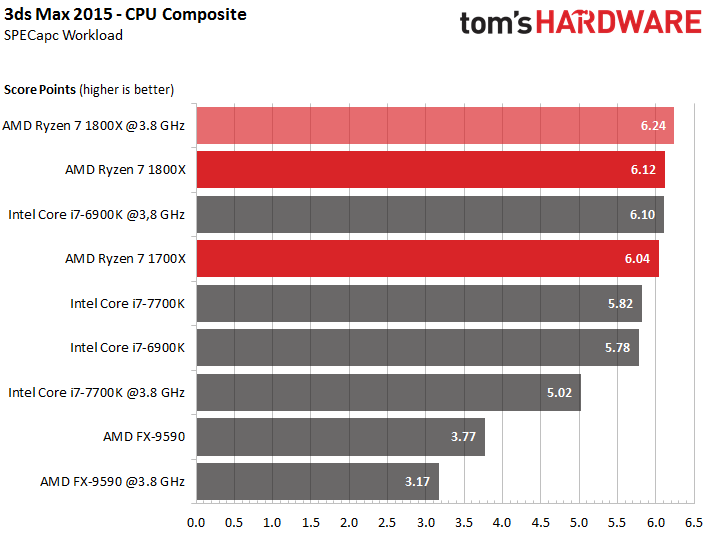
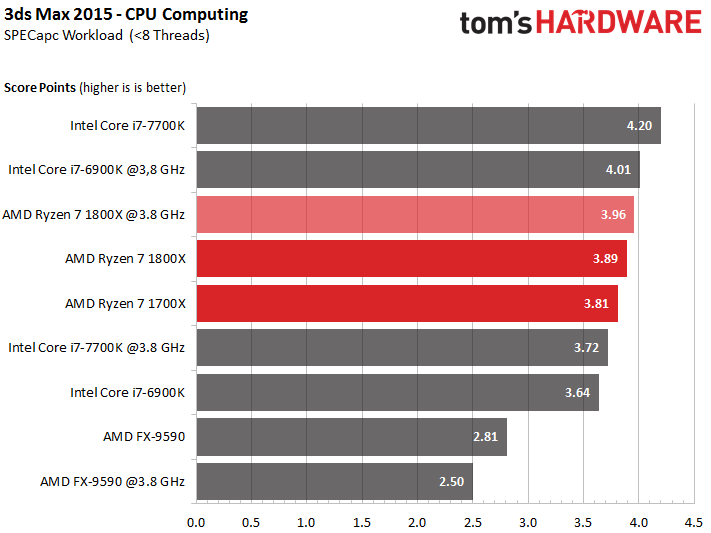
CPU Performance: Photorealistic Rendering
Workloads tuned for multi-core/multi-processor configurations love Ryzen. The stock 1800X and 1700X consistently appear in the top half of our test field, while the overclocked 1800X takes first or second place across the board. If you do a lot of rendering in Blender, 3ds Max, or LuxRender, Ryzen represents a good way to save money without compromising performance.
Considering the similar overclocking headroom available on 1700X and 1800X CPUs, a tuned 1700X should serve up even better value.
Get Tom's Hardware's best news and in-depth reviews, straight to your inbox.
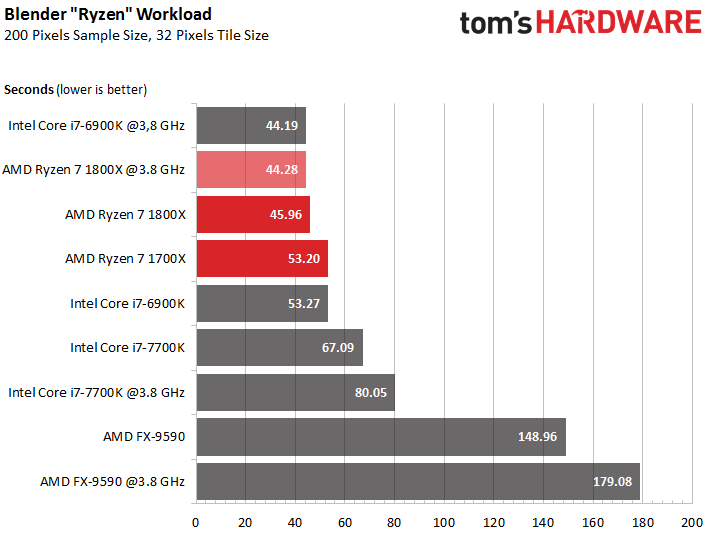
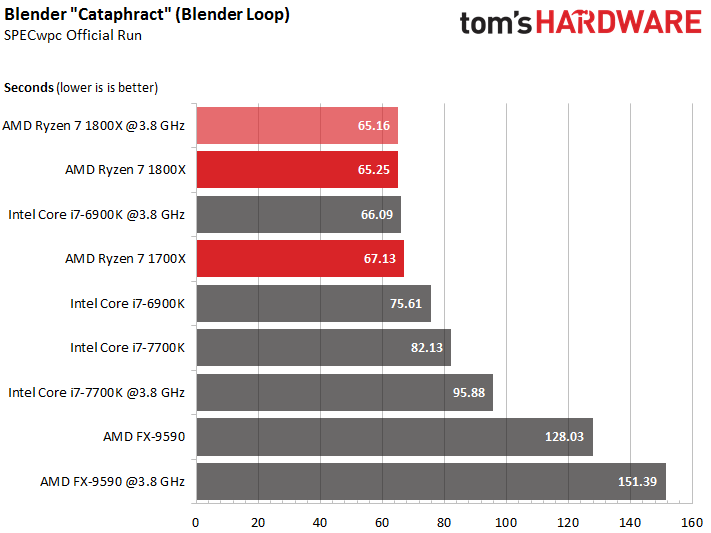
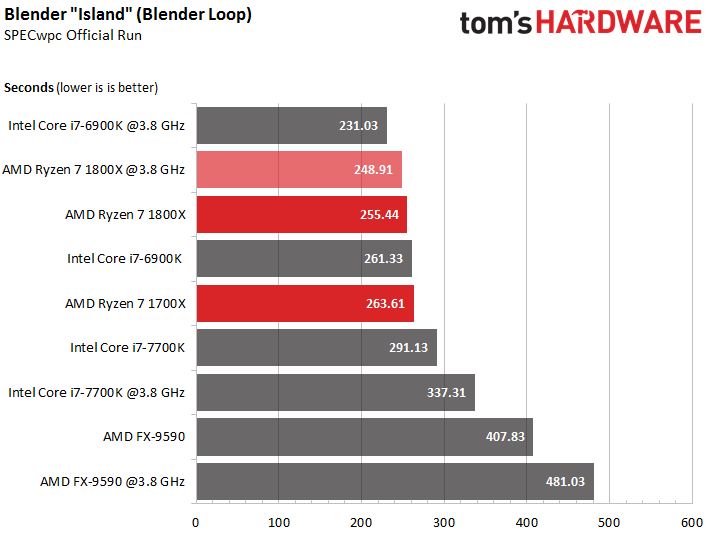
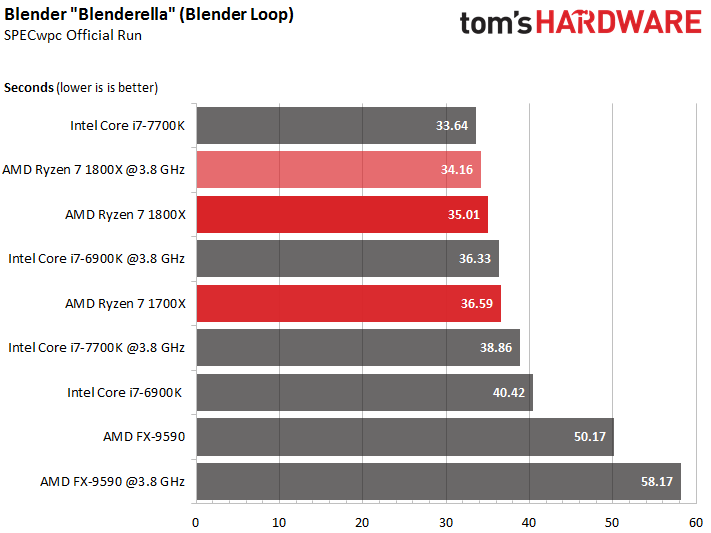
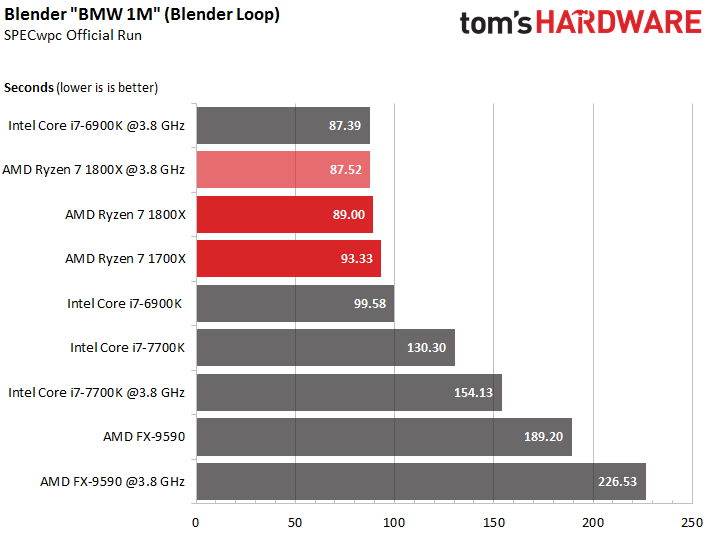
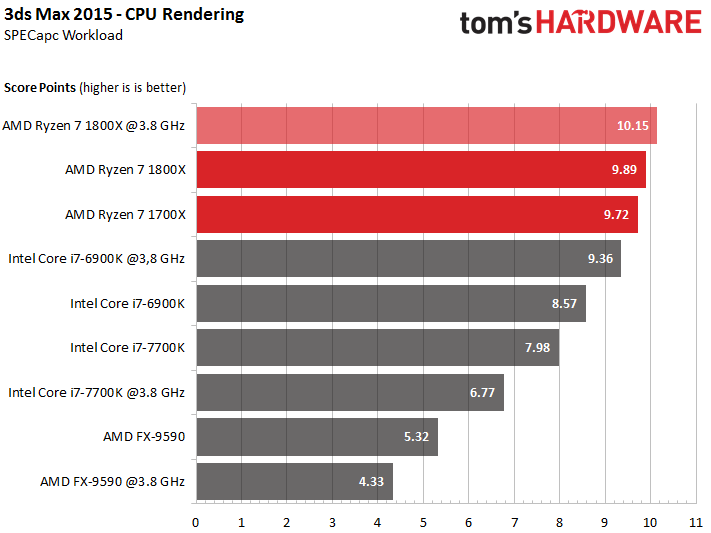
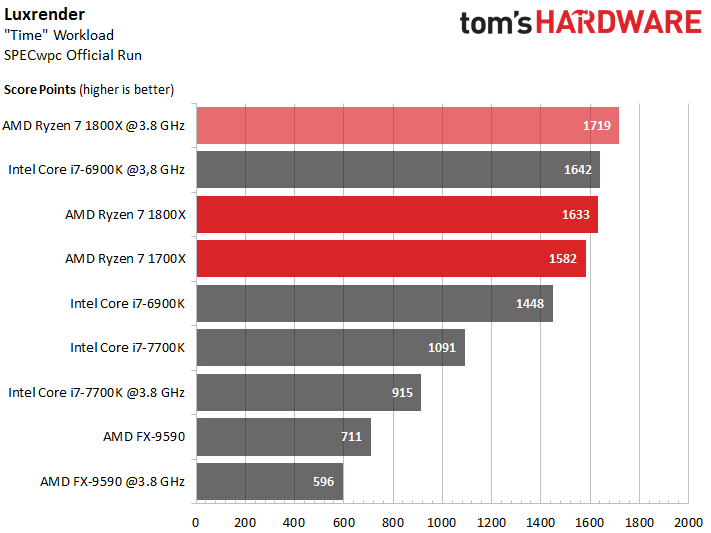
CPU Performance: Encoding And Compression/Decompression
AMD straight-up rocks our HandBrake encoding tests.
It's not as dominant in 7-Zip, but does trade blows with the Intel competition. Take a look at the 7-Zip decompression chart, specifically. Since Core i7-7700K lands at the top, we can assume this workload can't fully utilize the 8C/16T CPUs. This explains why a stock Core i7-6900K lands among the Ryzen configurations.
So long as the behavior of your workload is somewhat predictable, it's possible to guess how Ryzen will fare against Intel's nimble Kaby Lake models and beefy Broadwell-Es.
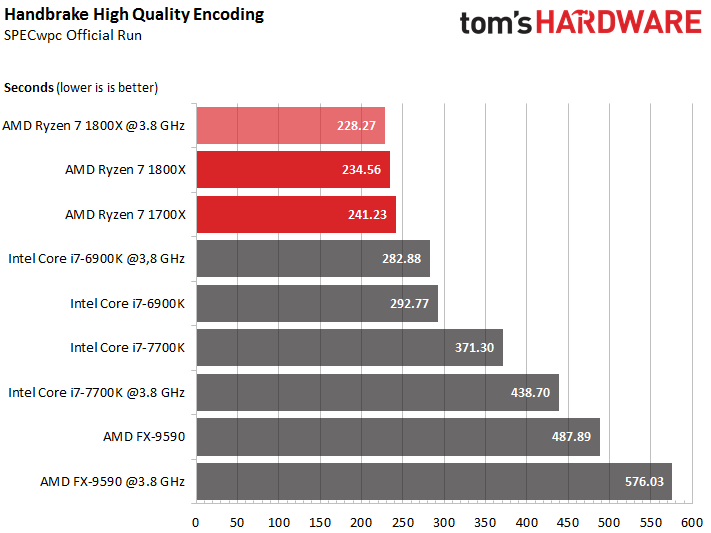
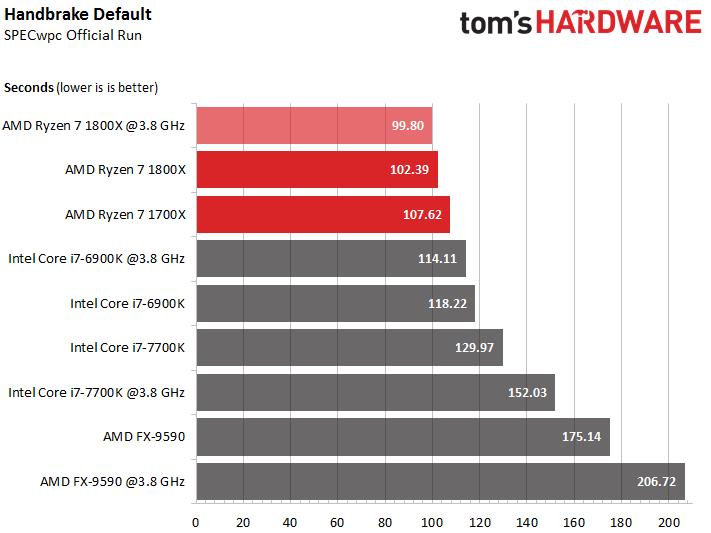
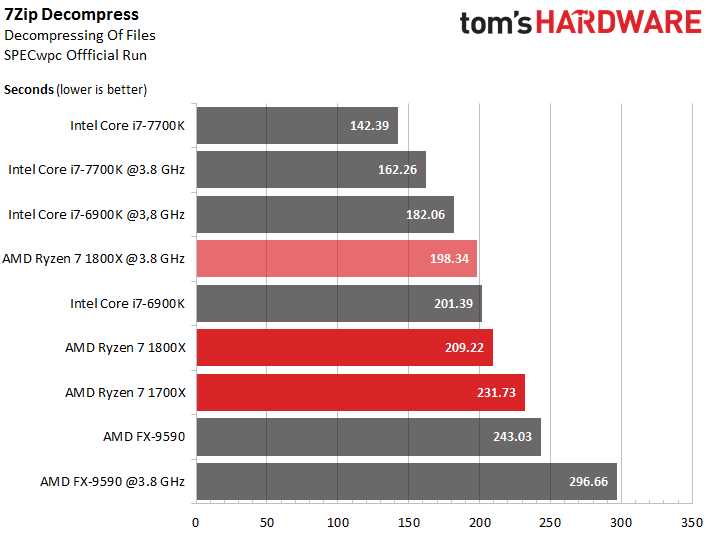
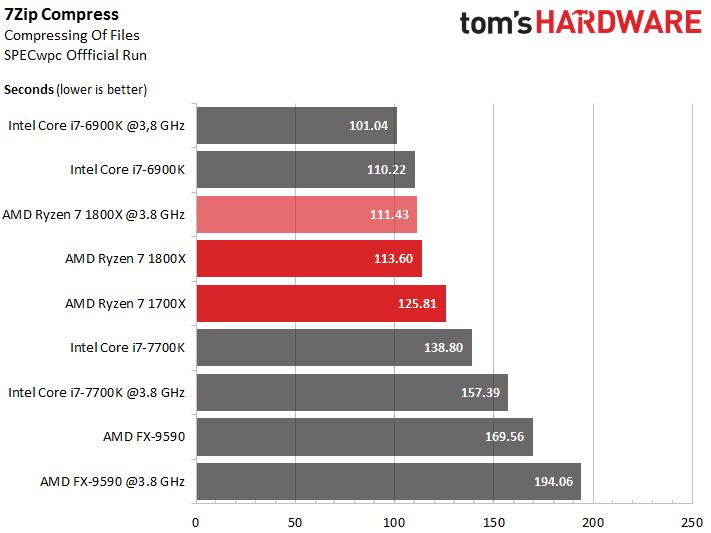
HPC Benchmarks (High Performance Computing)
The results of these HPC-oriented benchmarks vary depending on how they utilize each architecture. As a general trend, though, when a test is able to exploit Ryzen 7's eight cores, AMD beats the Core i7-7700K. It's usually able to give Core i7-6900K a run for its money, too. In the cases where Intel's -6900K is significantly faster, we might suspect specific optimizations for efficiency on Intel CPUs. We know, for example, that there are accelerated packages for LAMMPS, one of which includes Intel CPUs and Xeon Phi. SPEC doesn't say if any of these are part of its wpc 2.0 suite, though.
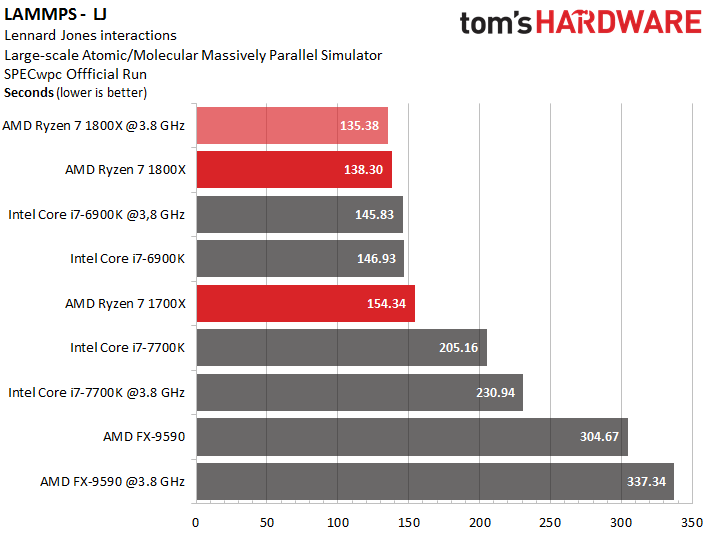
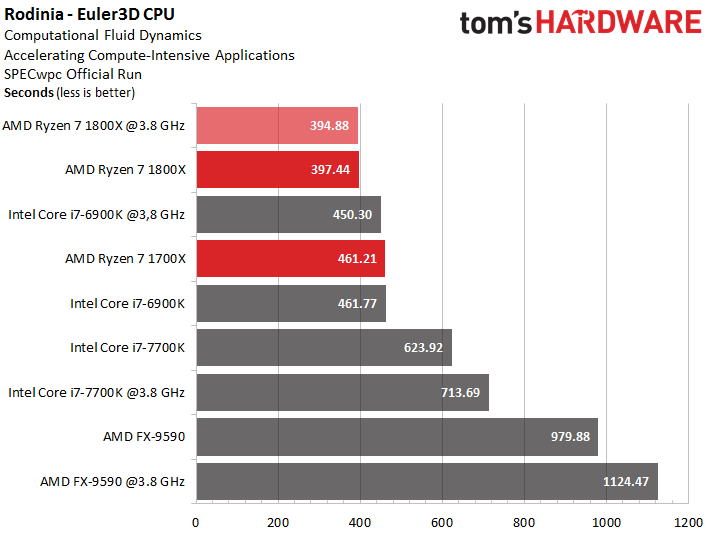
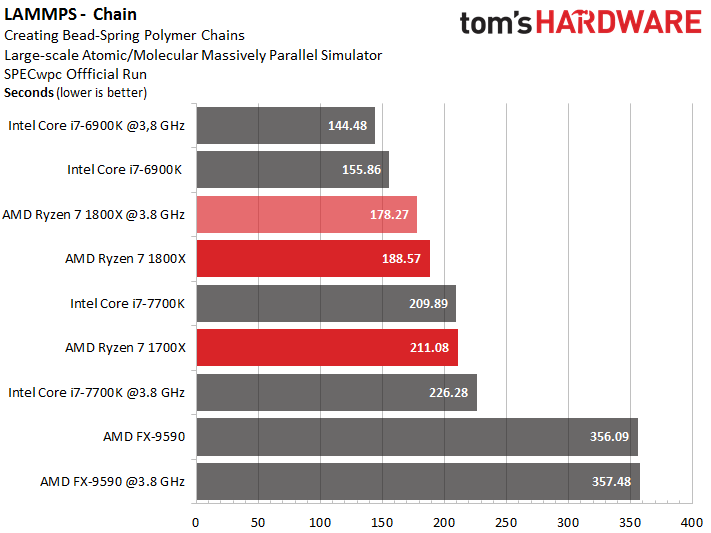
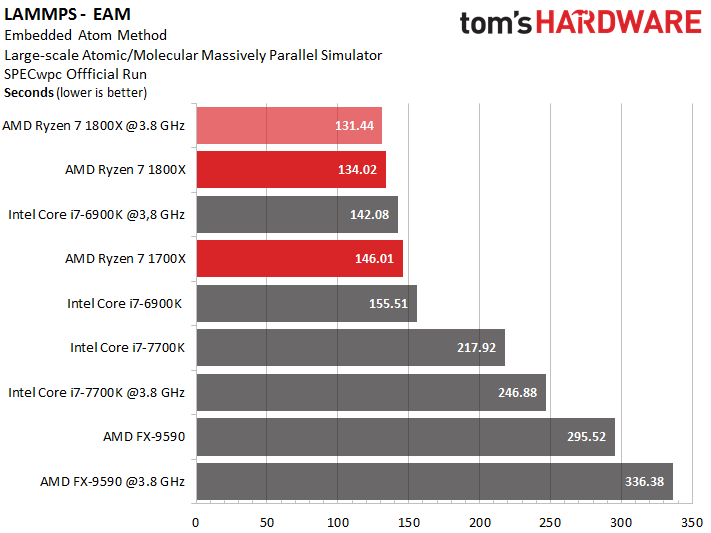
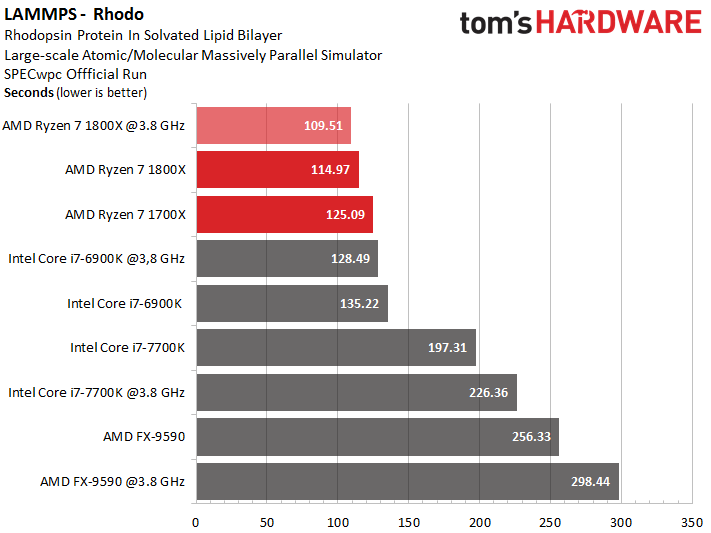
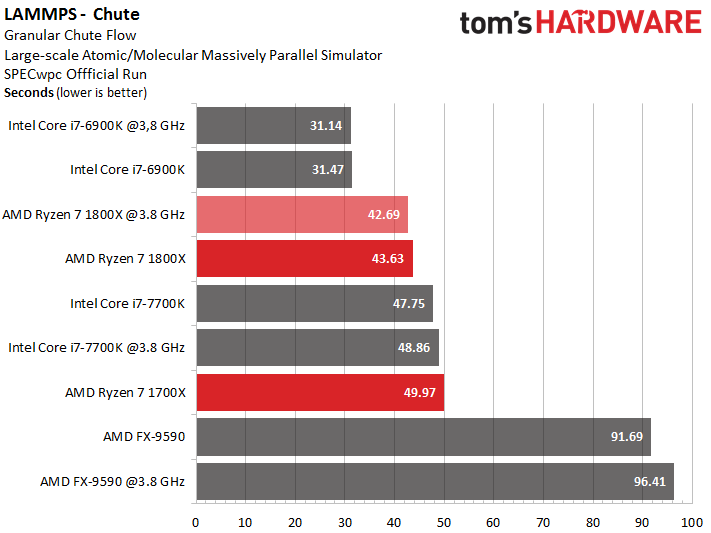
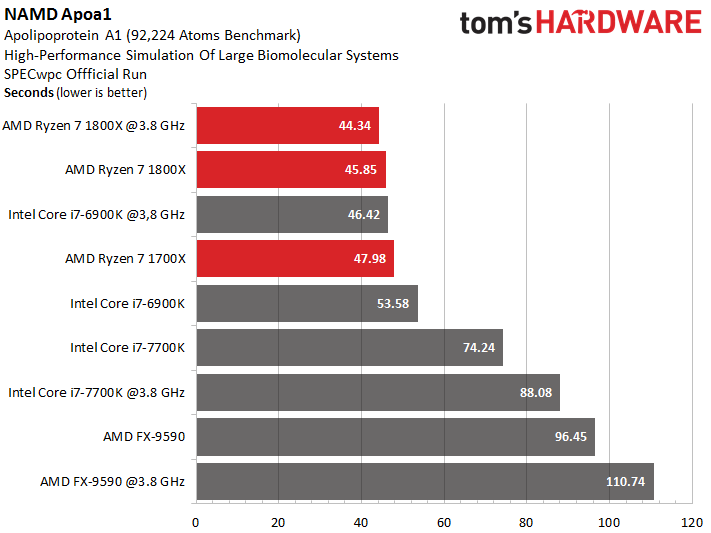
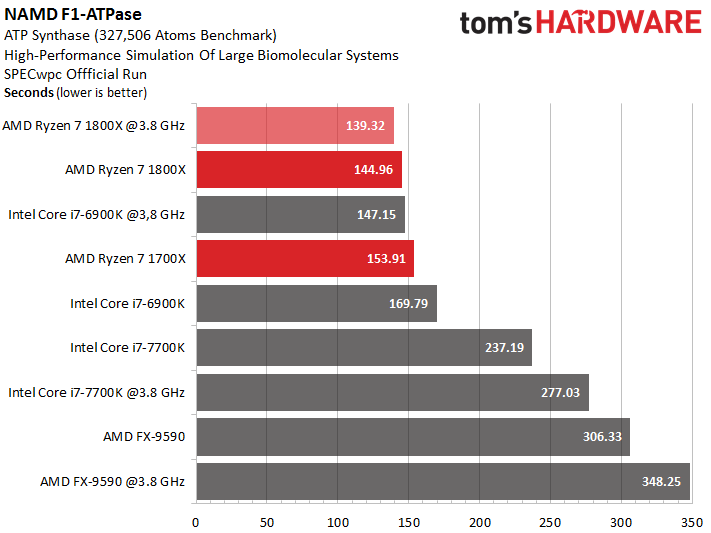
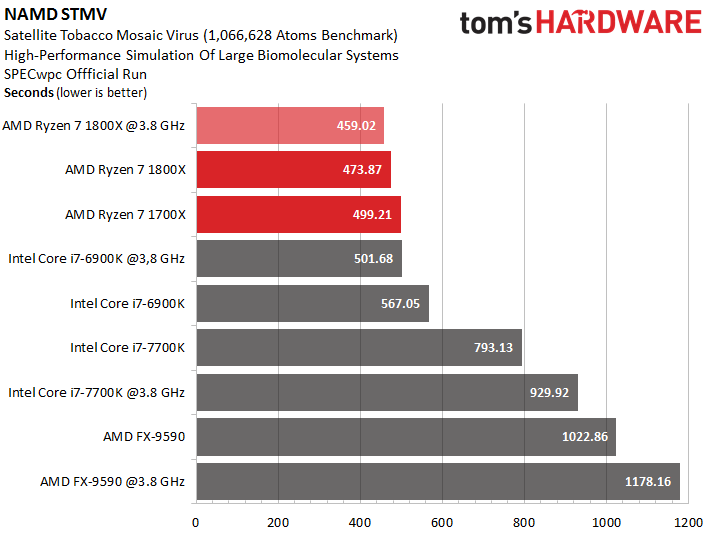
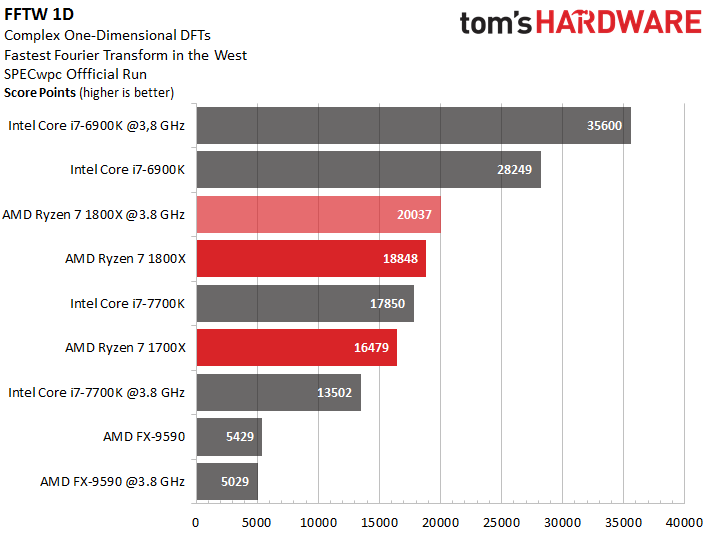
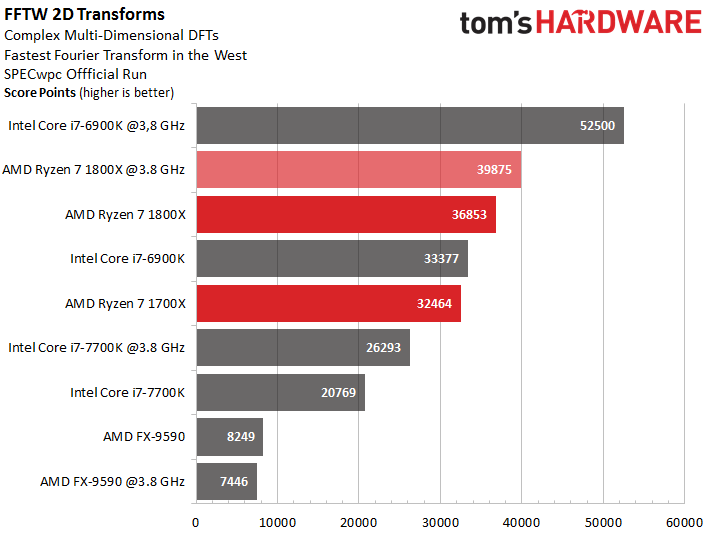
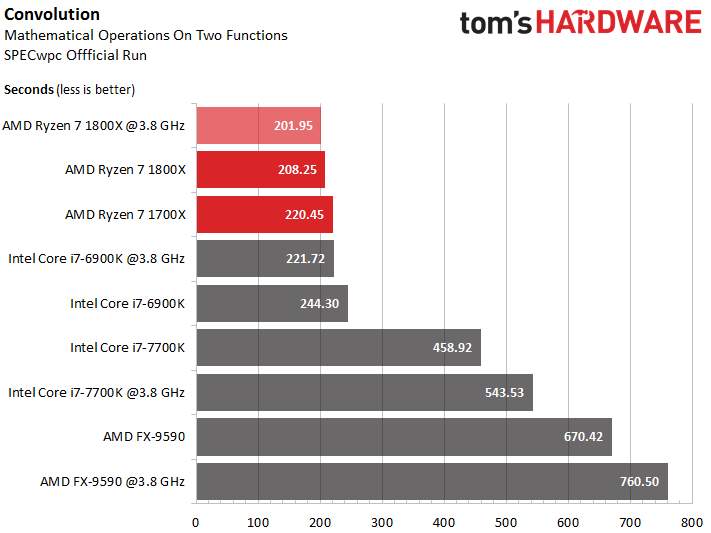
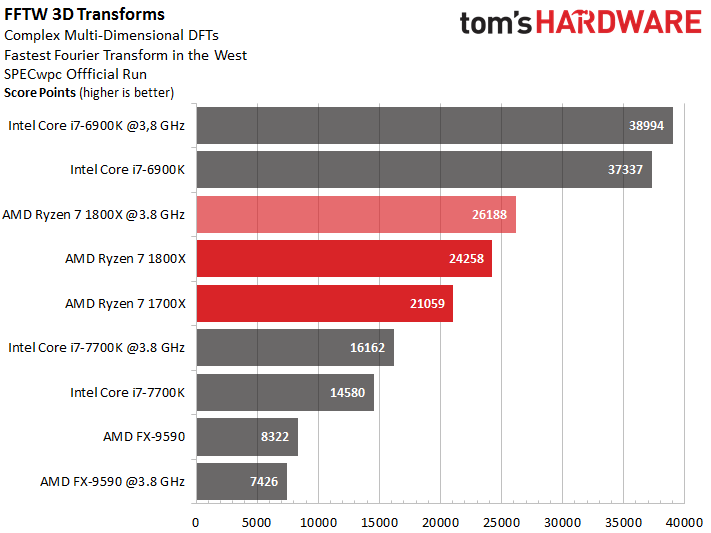
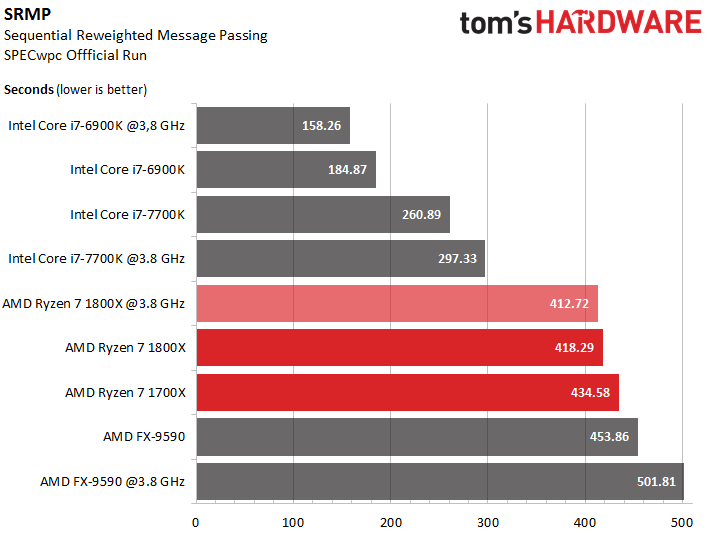
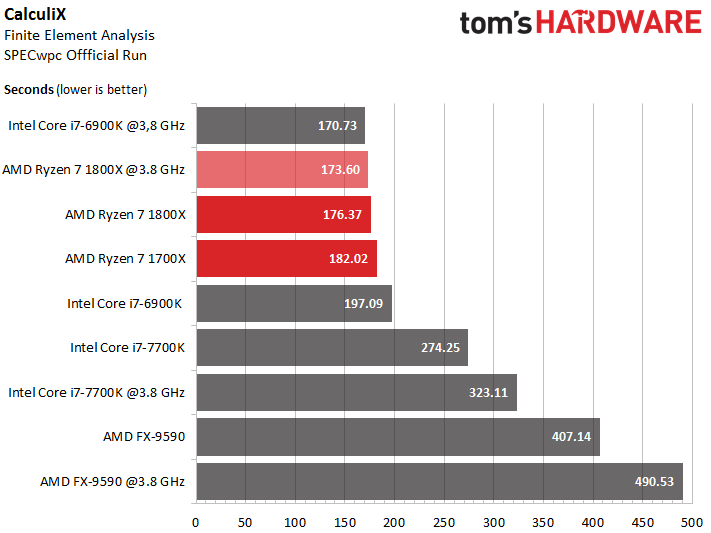
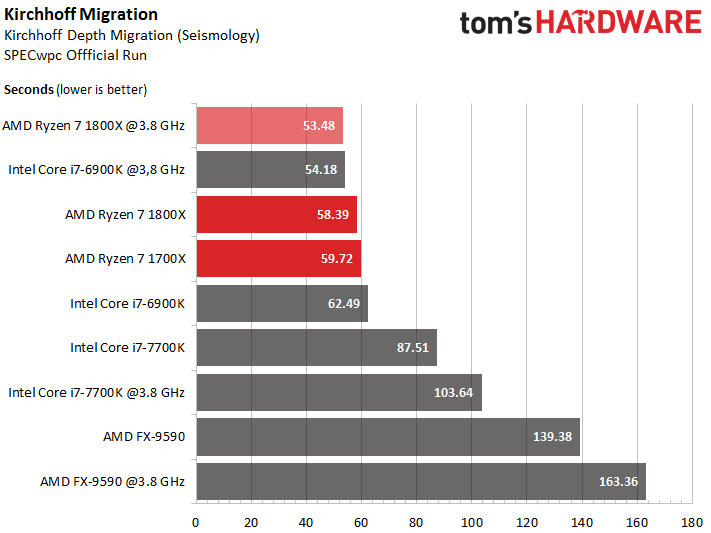
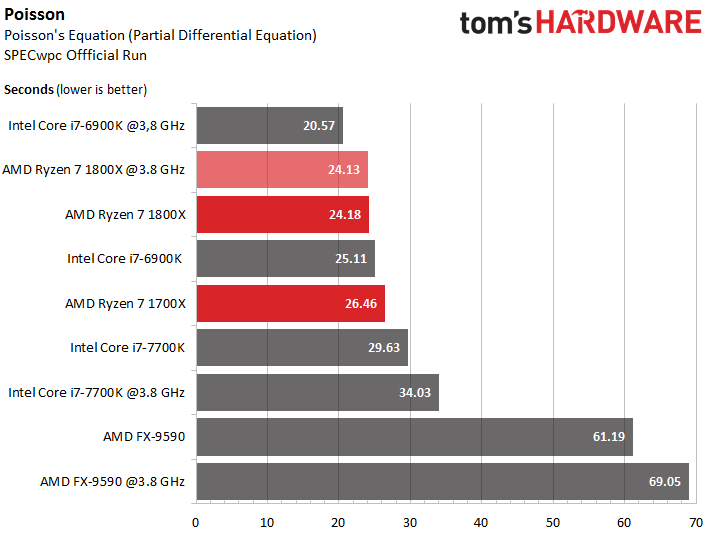
Current page: Workstation And HPC Benchmarks
Prev Page Project CARS, Rise of the Tomb Raider, The Division Next Page Power Consumption And Temperatures
Paul Alcorn is the Editor-in-Chief for Tom's Hardware US. He also writes news and reviews on CPUs, storage, and enterprise hardware.
-
Ergosum Whoever runs PR at AMD needs to reevaluate their methods. The 1800's and 1700's are very solid products, but for some reason were shadow marketed--letting rumor define the target application sets.Reply
AMD should have had a strong positive campaign on where these chips do well. Specific. Timely. They would have gathered some gamers who wanted to brag about handbrake performance or some-such. Instead they let the market build fairy castles in the sky about gaming-specific performance, and so (again) lost a great deal of goodwill and trust. -
hannibal The problem is that the market made those cloud castless, not the AMD... it is hard to AMD to say users not to speculate. Every information that AMD did give out was confirming that Ryzen was going to be really good multicore performer, and we all know that very few game use more that teo or three threats, so the extra 4-6 cores that Ryzen has normally Are useless I. The games, so any Intel 2-4 core prosessor wa going to better in the games if They would run in higher freguences that Ryzen and AMD very clearly tell us that 3.8 was the very near the top of the prosessor speed.Reply
If and when games start supporting 8 cores the 1700 is super good perfomer in the games too, but if and most propably because the situation stays the same. 2-4 more powerfull cores is always better in games that having more of them.
It seems that people now know games really poorly if They expected the Ryzen has any chance in those.
Ryzen 1500 (four cores) is as fast in the games than 1800X is and 1500 is much cheaper.
http://www.techspot.com/review/1360-amd-ryzen-5-1600x-1500x-gaming/ -
TechyInAZ Good review. Can't wait until software devs and motherboard manufactuer's get better optimized softwares and BIOS's so Ryzen isn't constantly dealing with this problem anymore.Reply -
dstarr3 Reply19481950 said:Conclusion: Ryzen still sucks.
It's not that Ryzen sucks, it's that Ryzen was meant to compete with Xeon CPUs, which it does very well. Gamers should look elsewhere, but for some reason, gamers are the ones that got most excited about these CPUs. -
elbert I wouldn't suggest either a 1070 nor the 1080 on 1080p. Probably should have tested with a more normal 1060 6GB at that resolution. Those willing to pay high prices for both the CPU and GPU should be running at 1440p. The game benchmarks are unnaturally skewed.Reply
The biggest thing to look at in the game benchmarks is how unutilized the Ryzen CPU's are. We will probably see the Ryzen R5 quads running the same FPS for a few hundered less then all but the old 8350 on April the 11th.
Also it looks like AMD is gearing up a new socket with 8, 12, and 16 cores on an X390 motherboard. At the current pricing the 16 core could be lower priced than Intel's over priced 6900 8 core. -
Achaios ?ll this talk about games supporting more than 4 cores is really a COMPLETE WASTE OF TIME.Reply
46.19% of Steam Gamers own 2-Core CPU's and 47.74% of Steam Gamers own 4 Core CPUs. No Game Studio is going to waste resources and money on optimizing games for more than 4 cores in the foreseeable future, if ever.
According to the same survey, only 0.24% of gamers own octacore CPU's. A little less than this is the presence of AMD Ryzen CPU's in the gaming market. Almost nonexistent.
I wish I was trolling. -
Oranthal Why did you only test 1080p performance? Most people who would consider these CPUs run an RX-480 or greater GPU if they are gaming ($300+ is still the premium market). Other reviews show the gaps shrinking or disappearing with greater resolutions as the bottlenecks are at the GPU where most die-hard review reading gamers will actually be limited.Reply -
Oranthal Reply19482020 said:I wouldn't suggest either a 1070 nor the 1080 on 1080p. Probably should have tested with a more normal 1060 6GB at that resolution. Those willing to pay high prices for both the CPU and GPU should be running at 1440p. The game benchmarks are unnaturally skewed.
The biggest thing to look at in the game benchmarks is how unutilized the Ryzen CPU's are. We will probably see the Ryzen R5 quads running the same FPS for a few hundered less then all but the old 8350 on April the 11th.
Also it looks like AMD is gearing up a new socket with 8, 12, and 16 cores on an X390 motherboard. At the current pricing the 16 core could be lower priced than Intel's over priced 6900 8 core.
100% spot on. I would of skipped my comment had I seen this when I started writing it.